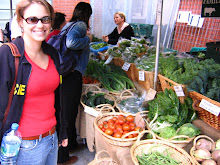Wayne is about as handy a man as you'll find, and he isn't happy unless there is a project or two to finish, followed by lunch, a nap another project, and a beer. So, we started each day of their 10 day "vacation" with a new project, followed by a trip to Lowes (or two). As promised earlier in this column, we got the insulating blinds on the wall of windows (on the *southwest* side of my house) hung first thing. I think this might have been self-preservation on their part--to ward off the heat of Georgia that was already thinning their Minnesota blood. The blinds make a HUGE difference. In years past my house would have been a airless oven in the afternoon, even as early as April. Now--even after a couple of 90 degree days I come home to a cool, shaded haven. They set me back $70 each from BlindsChalet.com and will likely pay for themselves in a few months. And, they are beautiful. Do it.
Next up was removing and replacing the old kitchen countertop, which I must say I *hated*. While not a sustainable living improvement, it sure improves my mood in the kitchen, which is sort of essential to the kind of sustainable living I chose to do. I observed that all the improvements I have made to my house and yard are all about food. Um, yeah. I choose to believe that I do *not* have an unhealthy obsession with food, rather a unusually consistent theme in work, life and play... Anyway, my new beautiful kitchen, which includes a new sink, a new energy-efficient light fixture, a fixed dishwasher and a gorgeous tiled backsplash, has made even more joy out of being in my favorite place in the house. Is it even possible? Yes.
A new raised bed, a potato tower and two rain barrels came next (and a clothesline, which I have yet to use because I lack the necessary accoutrement--clothespins!). Mom and I tackled the wood-working while Wayne got to work with the rain barrels. Watching Wayne work, I realized that it was an unbelievably easy exercise to trim the downspouts and install a few new elbows to direct the rain into the barrels. Even though I am mostly a novice with tools, I am going to tackle installing three more on the remaining downspouts on my house. That night, the 50 gallon barrels filled up in less than 5 minutes in one of Georgia's famous downpours. Water that would ordinarily have been redirected god knows where through the storm sewer now makes watering my food forest a breeze. Incidentally, I use on average, 50-100 gallons of water/day, so it's a nice visual reminder of my actual impact on the water world. They cost me $50 each + a few dollars for the downspout attachments. It's hard to assess the savings that accrue from "free" water, but this will surely save me a lot of money this summer since I have amped up my gardening a great deal from years past.
The raised beds and potato tower (of which I could use about 5 more!) have yet to see much action (more later!), but the chickens have taken to roosting on the edge of the raised bed at night, and are helpfully fertilizing the garden while they sleep. This pregnant lady sure appreciates this little favor from them. On the last day of their trip, after the wonderful baby shower organized by my dear friends, Mom painted the nursery while I put my feet up. I can't think of a better couple of people to help me through this thing called life. Thanks to them, and following their example, I can live life a little better, and bring this baby into a world of love, mutual aid, right living and closed loops.
Live, love and work for each other--we're all we've got.
